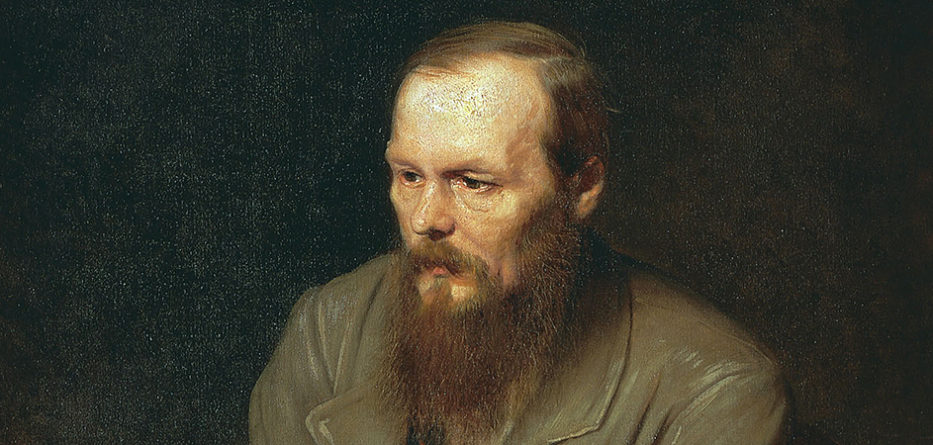Faith and the Entangled Life
a resource for process thinkers reading Dostoevsky
"But it is just in that cold, abominable half despair, half belief, in that conscious burying oneself alive for grief in the underworld for forty years, in that acutely recognized and yet partly doubtful hopelessness of one’s position, in that hell of unsatisfied desires turned inward, in that fever of oscillation, of resolutions determined for ever and repented of again a minute later -- that the saviour of that strange enjoyment of which I have spoken lies."
Dostoevsky, Notes from the Underground
Our lives are entangled outwardly and inwardly. Outwardly we are entangled with the objective world of plants and animals, viruses and bacteria, hills and rivers, friends and foes. Inwardly we are entangled with memories and hopes, joys and sufferings, and mixed motives, healthy and unhealthy, constructive and destructive. Sometimes we find ourselves in despair and belief at the same time, wondering if the mystery in whom we place our trust - God - might be found in, not apart from, the entanglements.
Christians say Yes. We speak of God-in-the-entanglements as incarnation. Process theologian Bruce Epperly writes: "Incarnation is messy and miraculous, a person and not a doctrine, concrete not abstract, real flesh not disembodied spirit, a child with hands open not an adult with clinched fists, the love of a parent, a child, a God." See his book Messy Incarnation: Meditations on Christ in Process. I think his title is perfect. No incarnation without messiness.
There is a beautiful side to the messiness and a hard side. Fyodor Dostoevsky (1821-1881) speaks to both sides, albeit with a leaning toward the hard side. He was a Russian novelist, short story writer, essayist and journalist - known as one of the world's most important writers and a gift from Russia to the world. Dostoevsky is many things to many people: prophet, psychologist, believer, doubter, existentialist, pessimist, sage, realist, and mystic. I think of him as a multiverse. His voluminous writings are vast and variegated network of characters, stories, and ideas that can be explored for a lifetime or more, without closure.
New to Dostoevsky? Where to begin. You might find the BBC podcasts offered on this page helpful and then pick up the books yourself. Or listen to the dramatic readings from some of his novels, also offered below by BBC. Or turn to the website for The International & North American Dostoevsky Societies. If you are especially interested in Dostoevsky and the life of faith, I recommend two books: Dostoevsky: Language, Faith, and Fiction by Rowan Williams and Incarnational Realism: Finding Christ among the Karamazovs by Paul J. Cortino. I offer this page for a very small group - open and relational or process theologians - who have little if anything of Dostoevsky and who want to get started. It can be a good companion to Bruce Epperly's Messy Incarnation.



